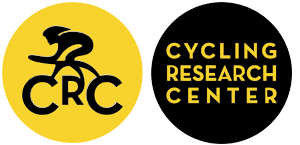Gross efficiency and cycling performance: a brief review
Keywords:
cycle training, biomechanics, pedalling, pedalingAbstract
Efficiency, the ratio of work generated to the total metabolic energy cost, has been suggested to be a key determinant of endurance cycling performance. The purpose of this brief review is to evaluate the influence of gross efficiency on cycling power output and to consider whether or not gross efficiency can be modified. In a re-analysis of data from five separate studies, variation in gross efficiency explained ~30% of the variation in power output during cycling time-trials. Whilst other variables, notably VO2max and lactate threshold, have been shown to explain more of the variance in cycling power output, these results confirm the important influence of gross efficiency. Case study, cross-sectional, longitudinal, and intervention research designs have all been used to demonstrate that exercise training can enhance gross efficiency. Whilst improvements have been seen with a wide range of training types (endurance, strength, altitude), it would appear that high intensity training is the most potent stimulus for changes in gross efficiency. In addition to physiological adaptations, gross efficiency might also be improved through biomechanical adaptations. However, ‘intuitive’ technique and equipment adjustments may not always be effective. For example, whilst ‘pedalling in circles’ allows pedalling to become mechanically more effective, this technique does not result in short term improvements in gross efficiency.Downloads
Published
How to Cite
Issue
Section
Copyright (c) 2012 Journal of Science and Cycling

This work is licensed under a Creative Commons Attribution-NonCommercial 4.0 International License.
Authors contributing to Journal of Science and Cycling agree to publish their articles under a Creative Commons CC BY-NC-ND license, allowing third parties to copy and redistribute the material in any medium or format, and to remix, transform, and build upon the material, for any purpose, even commercially, under the condition that appropriate credit is given, that a link to the license is provided, and that you indicate if changes were made. You may do so in any reasonable manner, but not in any way that suggests the licensor endorses you or your use.
Authors retain copyright of their work, with first publication rights granted to Cycling Research Center.






